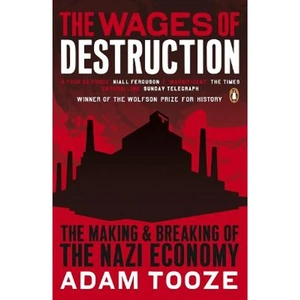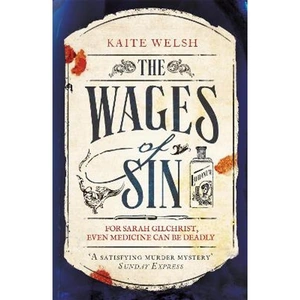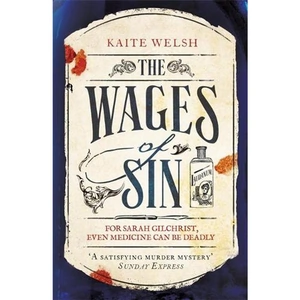Waterstones The Wages of Destruction
538 ratings

TO EXPLORE MORE
Price: £19.99
Brand: Waterstones
Description: Adam Tooze's The Wages of Destruction: The Making and Breaking of the Nazi Economy provides a groundbreaking new account of how Hitler established himself in power, mobilized for war - and led his country to annihilation. Was the tragedy of the Second World War determined by Nazi Germany's terrifying power, or by its fatal weakness? This gripping and universally-acclaimed new history tells the real story of the cost of Hitler's plans for world domination - and will overturn everything you thought you knew about the Third Reich.'A tour de force' Niall Ferguson' Masterful. smashes a gallery of preconceptions' The Times' This book will change the way we look at Nazi history. nothing less than a masterpiece. Rejoice, rejoice, for a great historian is born' Sunday Telegraph'A remarkable and gripping revision of the history of Nazi Germany' New Statesman Books of the Year'A powerful and provocative reassessment of the whole story' Richard Overy.
Category: Books
Merchant: Waterstones
Product ID: 9780141003481
Delivery cost: 2.99
ISBN: 9780141003481

My website utilises affiliate links when you click my 'Get the best deal now' buttons. If you buy something through one of these links, I may earn a little commission, at no extra cost to you.
I have relationships with many of the top online retailers (purchasing, shipping and returns will be handled directly by them) which enables me to offer the best deal online for the Waterstones The Wages of Destruction and many other similar products - which will appear below, to enhance your online shopping experience.
For even more great deals on Waterstones Books, click the link.
Author: Athan
Rating: 5
Review: If you do a word search on this book, I bet you the two first entries will be “coal” and “steel.” What we have here, basically, is a history of German coal and steel production from 1933 to 1945: what motivated it, what it actually was used toward, and who made it possible. Needless to say, the book is interesting precisely because coal, steel and (to a lesser extent, presumably for lack of data) wheat, oils and fat are the currency in which author Adam Tooze deals in Nazi Germany’s motivation, timing and the conduct of WWII, including its worst crimes. In broad terms, and yes, I’m oversimplifying (read the full 675 pages to get the actual detail –you will not regret it) the author’s reading of Hitler’s “Mein Kampf” and “second book” forms the basis on which he gets into the dictator’s head to arrive at the following a priori judgements: • The world’s mightiest empire, the British Empire, was about to be usurped by the United States of America, chiefly thanks to the immense success of American capitalists such as Henry Ford in developing the methods of mass production. This opened an opportunity for Germany to side with the US in the struggle for primacy and become the biggest European power. (Significantly, the author points out that this was not an enormous deviation from his Weimar Republic predecessors’ world view.) • In the early 20th century, Germany was a less-developed economy than France or Britain from a manufacturing perspective and could not hope to catch up without a concerted, state-driven effort, which would have to start with the end of WWI reparations and the reclaiming of the Ruhr. (Again, this was hardly a radical view for a German statesman to hold at the time.) • Germany, given its early 20th century borders, was doomed to lack of self-sufficiency in agriculture. For a number of reasons (all detailed in the book), redistribution of land would simply not suffice. (True enough, but also true of many other industrial powers) • To achieve self-sufficiency, (and here’s where it all starts to go horribly wrong) it was necessary for Germany to expand eastward. Along the lines of the American ideology of the frontier a militarized Germany would have to re-claim the fertile plains of Poland and the Ukraine. This would entail driving out the current, lesser human inhabitants of these lands, along the lines (p. 469) of what had happened to the American “Indians.” • The two arch-enemies of Germany in its efforts to achieve its destiny would be 1. the “Judeo-Bolshevik conspiracy” and 2. a chiefly “British / free markets / Jewish conspiracy” orchestrated by the likes of (American and 100% secular!) Louis Brandeis that for example favored free trade and whose appointed puppet in the world of politics was (p. 665) none other than Franklin Roosevelt. The reign of the National Socialists (including industrial policy, economic policy, monetary policy, decisions regarding both when to start war and how to wage war, all the way through to the fate of the conquered peoples) is recounted through the prism of these basic judgements and always with an emphasis on Germany’s ability to produce coal and steel. The book has three parts: before the war the protagonist is Goering and the story is told of how he and Schacht combined their efforts to bring about rearmament, which would have rendered Germany ready to fight by sometime in 1943-44, had Hitler been patient enough to wait. Goering and his minions (as the book progresses it’s increasingly faithful party members like Autobahn-layer Todt who replace technocrats) are “credited” with both “laying down the law” with the industrialists, using coercion and threats and making them complicit in the crimes against humanity the regime had in store right from the beginning, but also allowing them to make solid returns on the necessary heavy investment by guaranteeing both volumes and profitability levels. Schacht, on the other hand, is credited with succeeding in preventing the economy from running hot, in an environment where unemployment went from “worst ever” to literally zero. To do this, uniquely among developed nations, he never officially abandoned the gold standard, thereby creating a chronic lack of gold / currency, against which he had to suppress imports via a system like the one China runs today, whereby all transactions with foreign entities, and imports in particular, first had to be approved by the Reichsbank; a truly monumental endeavor. A much darker corollary of this suppression, and the author goes into quite some detail on the topic, was that many Jews delayed their emigration until they could find a way past these controls in order to export their liquid wealth, to say nothing of the fact that it encouraged pogroms that were intended to persuade them to leave without having done so. (N.B. the author has as good as expunged gold from the account, with zero loss to the story) Adam Tooze takes the time to explain that the economic renaissance Germany went through in this period was entirely down to the rearmament effort. The sundry highways and vanity projects like the people’s radio and the people’s car were 99% propaganda and barely register in the numbers. Indeed, even investment in railways, the ultimate infrastructure of the period, suffered. This was actually a rare way in which the Nazis left Germany in 1939 less prepared for war than they found it. Also, rearmament took priority over consumption, which was suppressed in a large number of overt and covert ways. From Goering’s preparations the author moves on to the decisions regarding the war itself. He does not get mentioned near as much as his lieutenants in the book, but the main character of the book at this stage is Hitler himself. To cut a long story short, the decision to attack France came down to numbers: every day that went by, and despite the best efforts of the Germans, the finite capacity of the German war economy in conjunction with the squeeze from the balance of payments situation meant that the allies were producing steel at a rate that eclipsed that of the axis powers. In other words, every day that went by the French would be better able to defend themselves. So the best time to attack was the earliest possible! The trigger came when the Ribbentrop – Molotov agreement allowed Hitler to relax about the “Jewish-Russian conspiracy.” That was his chance and he grasped it with both hands. The story Tooze tells next is fascinating: for all the talk about technological advances, the German army mainly moved on foot. WWII was the last war fought in Napoleonic style, not the first war of the modern era. And the swift conquest of France was down to the utter genius of von Manstein, who moved his army through the Ardennes and caught the British and the French napping. The myth of German “Blitzkrieg” was invented after the fact and was convenient to both the allies (who could claim to have lost to a new, mechanized, foe, rather than having been beaten on strategy) and to the Germans, who could suddenly believe they were conducting a winnable war. The conquest of France / Holland / Belgium / Luxembourg also changed the balance very significantly in the race for armaments, of course. Germany could suddenly dream that it was no longer waging a war at a material disadvantage. The fascinating story is told about how Germany did not violate the market system in availing itself of these resources. Quoting from p. 388, “Exporters in each country were paid, not by their customers in Germany, but by their own central banks, in their own currency. The foreign central bank then chalked up the deficit to Germany’s clearing account in Berlin. The Germans received their goods, the foreign suppliers received prompt payment, but the account never settled. At the end of 1944, the Reichsbank recorded almost 30 billion Reichsmarks owing to members of the clearing system.” (nothing like a bit of history to drive one’s understanding of what Hans Werner Sinn is talking about when he complains about Target 2) But the balance was not changed enough and Germany did not have the naval ability to conquer Britain, so in 1941 the exact same logic that had dictated the invasion of France dictated the invasion of Russia, this time on a very deliberate Blitzkrieg basis. In the conclusion to the book the author claims that Hitler's twisted ideology must also have played a part in this decision. In my view it’s the one bit of the book that’s probably a bit contentious. Yes, Hitler was ideologically driven to clear Germany’s Lebensraum of “lesser peoples,” but I find it hard to believe that even a madman of his caliber was fearful enough of what “world Jewry” might have had in store for him to precipitate an attack on Russia with inadequate resources that depended entirely on the hope of delivering a knock-out punch. In all probability, he’d started drinking some of his own “Blitzkrieg” cool-aid. Tooze himself backs up the idea that Hitler consciously shifted to Blitzkrieg (p. 667), if only because that was the only workable plan that would allow him to wage war on two fronts. Militarily, the rest is history, as they say, and it’s recounted here well (with coverage for North African campaign to boot). Special emphasis is given to the extermination of the Jews in the Ukraine and Belarus. It appears that some 11.3 million were specifically targeted for extermination! The author chooses not to comment on whether the operation in which they perished (called Taifun) was a military blunder, given that it diverted the German war effort away from the prime objective of taking Moscow and dealing Stalin a blow he would not recover from, or a sine qua non, given Hitler’s intentions to exterminate the Jews. But this is not a military history per se, so it shifts to Albert Speer and Fritz Sauckel and the way they conducted the losing war against the Soviets. In particular, and in keeping with the book’s unwavering the
Author: Mark Brown
Rating: 4
Review: Economics, by definition, is the study of scarcity. How the Nazis paid for their program of works in the 1930s/40s is probably a question that seldom bothers us. Our vision is of an Aryan uber-economic machine, over-coming all obstacles, like some fiscal-Blitzkrieg. This could not be more wrong. The Nazis could not suspend the laws of economics in the way they could not suspend the laws of physics. The tale revealed in this book seems so banal and so “modern” - even if the economics of the 1930’s seem so far away for anyone living in a modern liberal western democracy. This was a world of endless trade wars and the Gold Standard. Europe was in a race to compete with the burgeoning economic hegemony of the United States. Regardless of how much Hitler wanted to re-arm Germany his wildest fantasies were held back by quite mundane matters. Germany never had the foreign currency reserves to pay for the war materials it needed for full rearmament. It lacked the currency due to export restrictions. Starting the war itself was a gamble inspired by the growing arms race with France, Britain and America. Combined, the Allies were out-spending Germany yet they could better afford it as it represented a much smaller percentage of their overall earnings. The Germans were operating at the maximum armaments productive capacity through the 1930s and achieved brief superiority over Allies in only some areas, ie the Luftwaffe. The gamble in 1939 was based upon the perception of a very brief window of opportunity for a quick victory before the Allies started out-gunning Germany. That window closed quickly.... Regardless of popular myth, the Nazis were never short ingenuity. Yet even with millions of slave labourers (to propel Speers alleged “armaments miracle”) they could not build what they wanted for lack of steel and oil. Spikes in output in one industry came at the expense of another from where the raw materials were diverted. The German Navy & domestic consumption suffered. In the end the numbers never stacked up. They simply could not get access to the quantity of resources that the combined American, British & Soviet economies had. Even if money was no object this mattered little. The author casts himself as a revisionist historian yet his revelations are far from shocking (IF you understand them - since they are somewhat esoteric). Still, he does reveal many interesting facts as he goes back to look at real statistics rather that self-serving post-war memoirs. For example the popular myth about the lack of women in industry: Germany always had a higher percentage of women in the workplace than the Allies. He also reveals the crushing economic logic behind the “Hunger Plan” that was to wipe out millions of lives without needing a single person to step inside a gas chamber. Nazi Germany was never run for the benefits if its people. It was quickly converted to a war economy until its inevitable destruction. This re-interpretation, through the eyes of an economist, is quite revealing. Lessons for today?















